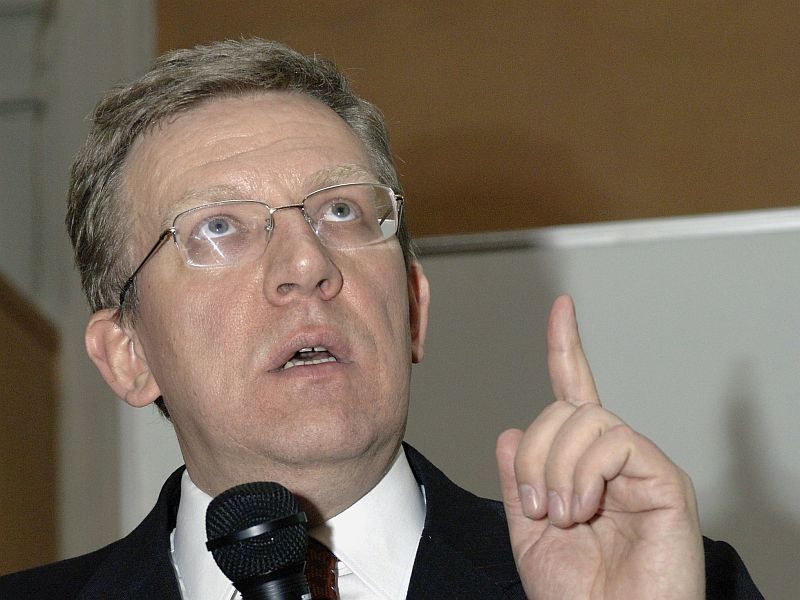
Economic Catastrophe Propels Russia into an Identity Crisis
Publication: Eurasia Daily Monitor Volume: 6 Issue: 40
By:

The economic crisis is affecting Russia worse than most developed or emerging economies, but its direct impact, such as the recession in industry that is expected to become even more serious in February, is multiplied by the psychological shock from the sudden collapse of belief in a resurgent Russian state. The need for an organizing and comforting ideology is very strong in the country, which is both a super-power with a thousand-year history of statehood and a struggling state-project with an indefinite trajectory. Prime Minister Vladimir Putin has always portrayed himself as a "pragmatist," but in fact his invincible popularity, which has registered only a minor dip to 78 percent, has been based on his ability to supply a reasonably coherent ersatz ideology of "Putinism" (www.levada.ru, February 26). It answered perfectly the ambitions of the new elites and the needs of a disoriented populace and included three key elements: prosperity, pride, and paternalism-or more precisely, Putin himself. All three are now in shambles, and Russia has found itself lost in depression (www.gazeta.ru, February 26; NewTimes, February 23).
Prosperity has essentially vanished even if the official estimate for real average income in 2009 anticipates only a moderate decline of 8.3 percent (Vedomosti, February 20). A better indicator was provided last week by Finance Minister Aleksey Kudrin, who predicted that the state budget income in 2009 would be 42 percent lower than the target figure approved in November (Kommersant, February 26). The government, nevertheless, insists that all promised increases in pensions and salaries in the state sector will be delivered, while admitting that this will push inflation up to 13 to 14 percent and suggesting that the budget deficit of about 8 percent of the GDP can be covered from accumulated reserves (Nezavisimaya gazeta, February 26). Macroeconomic parameters, gloomy as they are, cannot express the pessimism among the expanded middle class that had enthusiastically embraced the culture of consumerism and "glamour" and now has to switch back to survival strategies.
Pride is definitely a less measurable dimension of national identity, but Putin sought to boost it in every possible way, bragging about Russia’s sheer size and nuclear arsenal, richness in hydrocarbons, and achievements in sports. Now, suddenly, the collapse of oil prices has punctured the inflated national ego and demonstrated that Russia is hardly anything more that an oversized petro-state. Collective bitterness from this disappointment manifested itself last week in the emotional debates over a documentary shown on the NTV channel about the disastrous Battle of Rzhev in 1942. Patriotically-minded politicians proposed making denial of the USSR’s key role in achieving victory in the Great Patriotic War a punishable crime, and Prosecutor General Yuri Chaika expressed support for this initiative (Ezhednevny zhurnal, www.grani.ru, February 27).
A particularly important component of Russian pride has always been the respect and awe that the country is able to earn in the international arena, and especially its ability to relate to the United States on an equal footing. The global crisis has reduced Russia’s status from a full member of the G8 select club to a regular participant in the G20 gatherings, while its partnership with the EU has badly deteriorated, so the focus on dialogue with the Obama administration as an equal has become more pronounced. The proposal to press the "reset button" expressed by the U.S. Vice-President Joe Biden at the Munich conference last month has been discussed at great length by Moscow’s experts (Rossiiskaya gazeta, February 25; Nezavisimaya gazeta, February 27). The point that remains lost in this talk is that anti-Americanism is far more useful for Putin than any new format for strategic arms control (Ezhednevny zhurnal, February 26). Andrei Illarionov, a former Putin aide, argues that Obama, much like his two predecessors, could easily take Putin for a man he could do business with, only to discover later that the corrupt, anti-democratic nature of this regime inevitably drives it toward a confrontation with the United States (www.gazeta.ru, February 26).
Finally, the Putin-centric part of the crumbling ideology is being steadily eroded by the fact that the function of "supreme leader" is now formally performed by President Dmitri Medvedev, while 45 percent of Russians (up from 25 percent a year ago) are confident that Putin maintains full control (www.levada.ru, February 27). The position of prime minister, which in December 2007 seemed a perfect cover for preserving the "vertical" system of power, has turned out to be a trap whereby Putin must take responsibility for managing the ever-deepening crisis. He tries to project confidence. He stated at a meeting with the top functionaries of the United Russia quasi-party that "We are able to keep the situation under control and we will definitely do this" (Kommersant, February 28). This pep-talk is impressing his team less and less. Governor Aleksandr Khloponin of Krasnoyarsk Krai said at the remarkably lively economic forum that even the strongest regions had only enough resources for maintaining financial stability for another month (www.gazeta.ru, February 27). Kudrin added the dry assessment that even if oil prices were to climb to $50 or $55 per barrel, Russia’s GDP would not begin to expand in synch (RBC Daily, February 27).
That means that the main underlying assumption behind the inconsistent and hugely wasteful anti-crisis policy-that Russia only needs to muddle through a difficult year-is quite possibly just an exercise in wishful thinking. Prosperity would not return after a year of living meagerly; pride could hardly receive a boost from gloating over Ukraine’s bankruptcy exacerbated by political squabbles; and the residual hopes that Putin knows what he is doing might evaporate in a matter of months. Russia has survived many devastating cataclysms in its history, but the hardest trials were set by declining respect for the authorities and diminishing trust in a common purpose. Putin had enjoyed an incredible run of good luck but failed to step down at the end of it, and he is now trying to apply his methods of enforcing consensus to crisis management. He has little chance of succeeding. His symbolic "father-of-the-nation" value is fast diminishing, and he can neither discipline nor bribe the disagreeable elites, who know that Medvedev is not up to the job and that they need a fresh prime minister.




